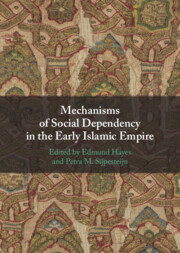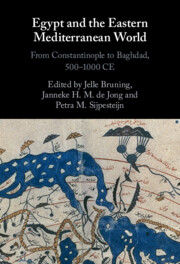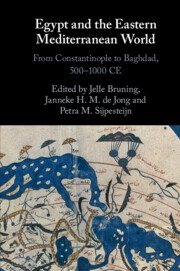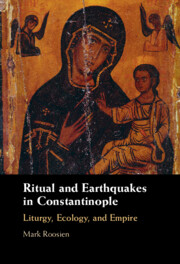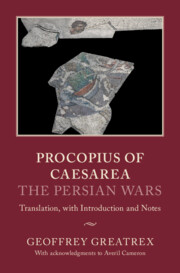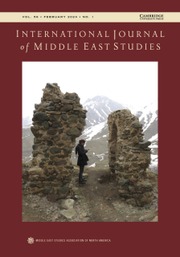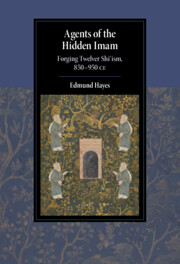Mechanisms of Social Dependency in the Early Islamic Empire
The success of Islamic imperialism in the period from the conquests to the Ayyubid dynasty has traditionally been explained as purely the result of military might. This book, however, adopts a bottom-up approach which puts social relationships and local power dynamics at the centre of the Islamic empire's cohesion. Its chapters draw on sources in diverse languages: not just Arabic, but also Greek, Coptic, Syriac, Hebrew, and Bactrian, showing how different linguistic communities intersected and contributed to a connected yet diverse empire. They highlight how not just literary and historical texts, but also physical documents and archaeological evidence should be incorporated into writing histories of the late antique and early medieval Middle East. Social institutions and relationships explored include oaths; petitions, decrees, and begging letters; and financial frameworks such as debt and taxation. This title is also available as Open Access on Cambridge Core.
- Provides a new framework for understanding how the early Islamic empire, and pre-modern empires more broadly, worked together through cooperation and interdependence as well as through coercion
- Shows how different linguistic communities intersected and contributed to a connected yet diverse empire
- Uses physical documents and archaeological evidence as well as literary and historical texts in order to produce a broader picture
- This book is also available as open access
Product details
November 2024Adobe eBook Reader
9781009384285
0 pages
14 b/w illus. 5 colour illus. 15 tables
This ISBN is for an eBook version which is distributed on our behalf by a third party.
Table of Contents
- List of figures
- List of tables
- List of contributors
- Preface and acknowledgements
- Notes on transliteration, names and dates
- Introduction: the ties that bound the societies of the Islamic Empire Edmund Hayes and Petra Sijpesteijn
- Part I. Personal Ties:
- 1. Ties of unfreedom in Late Antiquity and early Islam: debt, dependency and the origins of Islamic law Robert Hoyland
- 2. The local clergy and 'ties of indebtedness' in Abbasid Egypt: some reflections on studying credit and debt in early Islamicate societies Cecilia Palombo
- 3. 'Return to God and the brotherhood of good and excellent people': Bringing the prodigal son back home in Ayyubid Egypt Oded Zinger
- 4. Aloneness as connector in Arabic papyrus letters of request Petra Sijpesteijn
- 5. Swearing Abū al-Jaysh into office: the loyalties of Ṭūlūnid Egypt Matthew Gordon
- Part II. Institutions:
- 6. Messengers in Byzantine and early Muslim Egypt – small cogs, but systemically relevant. With some remarks on the dossier of Menas, stratiōtēs Stefanie Schmidt
- 7. The epistolary imamate: circular letters in the administration of the Shiʿi community Edmund Hayes
- 8. Early Arabic decrees on papyrus from the Abbasid period Naïm Vantieghem
- 9. A state letter from a Marwanid caliph to his governor of Iraq: a historiographical investigation into Khālid b. ʿAbd Allāh al-Qasrī's downfall Noëmie Lucas
- 10. Between the Arabs and the Turks: household, conversion and power dynamics in early Islamic Bactria Said Reza Huseini
- 11. The affective connection in early Islamic social hierarchies: affection, threats, and appeals to piety in official documents from the Umayyad and Abbasid periods Karen Bauer
- Part III. Communities:
- 12. Local elites during two periods of civil strife: Al-Ashʿath b. Qays, Muḥammad b. al-Ashʿath, and the quarter of Kinda in seventh-century Kufa Georg Leube
- 13. Rulers, Ḥanābila and Shiʿis – the unraveling social cohesion of fourth/tenth century Baghdad Nimrod Hurvitz
- 14. Resistance to and Acceptance of the Fatimids in North Africa: A Shiʿi dynasty in negotiation with both adherents and enemies Paul E. Walker
- 15. Boundaries that bind? Pagan and Christian Arabs between Syriac and Islamic strategies of distinction (late first century AH) Simon Pierre
- 16. 'Peace be upon you': Arabic greetings in Greek and Coptic letters written by Christians in early Islamic Egypt Lajos Berkes
- 17. Tied to two empires: the material evidence of the Islamic conquest of Sicily Joanita Vroom
- Index.

